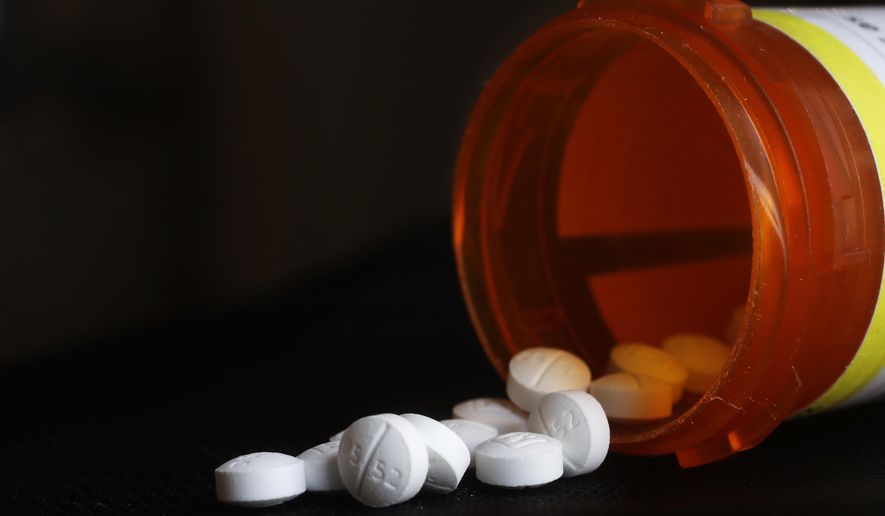Imagine taking a vaccine to avoid addiction to opioids. U.S. researchers have done more than imagine it and have started the first opioid vaccine clinical trials.
The Centers for Disease Control and Prevention reported this summer that more than 71,000 people, a record number, died in the U.S. from opioid overdoses in the 12-month period that ended in February.
“We need new approaches to addressing the opioid crisis because we’re seeing these huge increases in opioid-related overdose deaths,” said Sandra Comer, the clinical trial’s lead investigator.
Ms. Comer, a professor of neurobiology and psychiatry at Columbia University Irving Medical Center, said that “highly effective treatments like methadone, buprenorphine and naltrexone” are not enough to curb the opioid crisis.
Relapse rates for those medications hover around 50% after six months of treatment, she said.
“We’re hoping that the addition of a vaccine will serve as a ‘safety net’ against overdose if a patient does discontinue their treatment medication and relapses to opioid use,” Ms. Comer said. “It also may provide us with a window of time to reengage patients in treatment if/when they relapse.”
Researchers are in the early stages of testing a vaccine against oxycodone toxicity in untreated people with opioid use disorder. They also are developing vaccines to prevent heroin and fentanyl overdoses.
The clinical trial aims to enroll 45 people ages 18 to 59 who are physically dependent on opioids. Participants receive either a placebo or the vaccine in a shot once a month for three to four months.
Of the seven participants enrolled in the trial so far, two have dropped out.
Unlike other drug treatments, the vaccine doesn’t require patients to have the opioid completely out of their systems, Ms. Comer said. It has no abuse liability, can be paired with existing treatments and has a potentially longer-lasting effect, she added.
The vaccine works by generating antibodies that bind to the target opioid to prevent it from reaching the brain. If the opioid reaches the brain, it creates a euphoric feeling but can stop signals that control breathing.
Dr. Marco Pravetoni, a professor of pharmacology and medicine at the University of Minnesota Medical School, designed the vaccine. “So to speak, the vaccine-induced antibodies work like an antidote or like a sponge soaking up the circulating drug target so that the drug cannot exert its effects/actions,” he said.
If the vaccine proves successful, Dr. Pravetoni said, it could help curb opioid use disorder and overdoses and “open up the road” for other vaccines or antibody-based treatments.
The vaccine was tested in animal studies and “performed well,” WebMD reported this month.
Still, the trial has brought skepticism and debate from people opposed to vaccine mandates by employers, schools, hospitals and governments.
Barbara Loe Fisher, president of the National Vaccine Information Center, said the organization would support the voluntary use of an opioid vaccine recommended by the CDC and licensed by the Food and Drug Administration.
She said her organization advocates education and informed consent but does not make recommendations for vaccine use.
“We support flexible medical, religious and conscientious belief vaccine exemptions and oppose one-size-fits-all vaccine policies and laws that use coercion or societal sanctions, such as denial of education or loss of employment and health care, to compel people to get vaccinated,” Ms. Fisher said.
The most recent CDC data shows opioids are involved in about 75% of drug overdose deaths. Nearly 50,000 Americans died in 2019 and about 69,000 in 2020 from opioid-related overdoses, driven mainly by synthetic opioids such as fentanyl.
An estimated 2 million Americans had an opioid use disorder in 2018, the CDC says.
“Novel approaches like an opioid vaccine could help save some of the many lives lost to opioids,” said Dr. Emily Einstein, chief of science policy for the National Institute on Drug Abuse. “We owe it to the millions of Americans whose lives have been impacted by the opioid overdose epidemic to pursue every therapeutic approach with strong potential.
“This vaccine would not have made it to the clinical trials stage without robust evidence in support of such therapeutic potential,” she said.
Dr. Einstein said an opioid vaccine could help people who have difficulty following daily medication regimens or those who might not have naloxone on hand to reverse the effects of opioid overdose.
William Stauffer, the executive director of PA Recovery Organizations Alliance, said the shot could help people with opioid use disorder avoid relapse.
“I think any such tool is helpful, but most of our people are using multiple drugs,” Mr. Stauffer said.
A vaccine could be an alternative in treating opioid use disorder, he said, but people in recovery will likely still need comprehensive care such as behavioral therapy.
The goal of the clinical trial is to determine whether the vaccine is safe and produces enough antibodies to prevent euphoria when the study volunteers are given oxycodone. Physicians and nurses will monitor study participants for several weeks in an inpatient setting during the trial.
The researchers also will assess participants’ drug use on an outpatient basis.
Researchers anticipate enrolling up to 24 volunteers as part of a pilot study. If the vaccine seems safe and shows promise, they expect to expand the trial to include 45 volunteers.
• Shen Wu Tan can be reached at stan@washingtontimes.com.




Please read our comment policy before commenting.